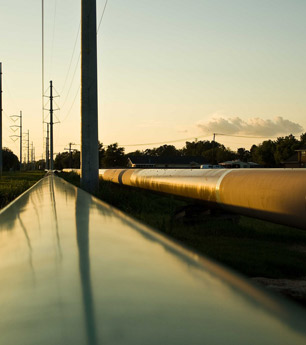Foresight is a basic skill for a conscious people. This is how we make plans for the future, predict obstacles and prepare. So why does it feel like corporations are always a step ahead of our efforts to shape the future? The quick answer is that the future is not bound by the laws we abide by, and corporations know it.
There are plans to build crude oil terminals in my state of Washington. We are told that the terminals would not be used to export American crude to foreign countries, because that’s illegal. The Energy Policy and Conservation Act of 1975 (P.L. 94-163, EPCA), which directs the President to restrict the export of crude oil, was enacted in response to the 1973-74 Arab oil embargo, to conserve our reserves and secure some semblance of American energy sovereignty. As American oil and energy production booms with the shale and tar sand revolution, there is mounting pressure to remove any and all impediments to the extraction and burning of domestic fossil fuels.
Lifting the crude export ban would further encourage the combustion of North American fossil fuels and open the door even wider for a climate catastrophe. These fuels, made available by novel technologies, are the hardest to extract – and the last remaining deposits North American humans will see.
Westway Terminals, an international liquid storage provider, is proposing to build four new 200,000-barrel tanks for crude at the Port of Grays Harbor, midway up Washington’s coastline. The crude would be coming from North Dakota, Colorado, Nebraska and possibly Alberta, Canada. As current American law bars the exportation of US crude, with few exceptions (the foreign Canadian crude can be exported), we’d be surprised if we started to export crude, but we shouldn’t be.
Stratagems that are illegal in the present are hard to predict with foresight. However, if we don’t want to be caught off guard by corporate “surprises,” we need to treat law like the malleable substance that it is.
Despite the illegality of exporting crude under current American law, other members of the World Trade Organization (WTO) might view this US policy as a violation of free trade agreements. As the world runs dry of fossil fuels, all it will take is a complaint by China or India and the US policy that bans crude exports will be taken to WTO’s court, where the decision is out of our hands.
In March 2012, the United States, European Union and Japan filed a WTO “consultation request” with China concerning the Asian leader’s restrictions on rare earth exports. Who would we be to complain about China’s ban on rare earth exports and then turn around and defend our own ban on crude exports?
History shows that US policy is not immune to being struck down by the WTO. The US embargo on Mexican yellowfin tuna, for example, was overturned by the WTO in 2011. Our dolphin-safe tuna label was also ruled a violation of international free trade.
The WTO might not need to get involved. The Energy Information Administration (EIA) Administrator Adam Sieminski recently said at a 2012 Bipartisan Policy Center conference on EIA’s Annual Energy Outlook that, “I’m not sure we should just automatically assume that [exporting crude oil] would be bad.” He went on to say that it “might actually be a way to grow the economy, create jobs and ultimately help reduce prices.”
Though we are told that exporting crude is illegal, and that the proposed terminal in Grays Harbor would not export crude, we should not let the present illegality of crude oil exports stop us from preparing for it in the future. The legalization of American crude exports would place yet more power over earth’s climate into the hands of the globalized “free” marketplace. To prevent this and conserve North America’s limited fossil fuels, the malleability of law needs to be incorporated into the understanding of reality that informs our foresight – and consideration of the building of crude oil terminals in Washington state.
5 Days Left: All gifts to Truthout now matched!
From now until the end of the year, all donations to Truthout will be matched dollar for dollar up to $50,000! Thanks to a generous supporter, your one-time gift today will be matched immediately. As well, your monthly donation will be matched for the whole first year, doubling your impact.
We have just 5 days left to raise $50,000 and receive the full match.
This matching gift comes at a critical time. As Trump attempts to silence dissenting voices and oppositional nonprofits, reader support is our best defense against the right-wing agenda.
Help Truthout confront Trump’s fascism in 2026, and have your donation matched now!
